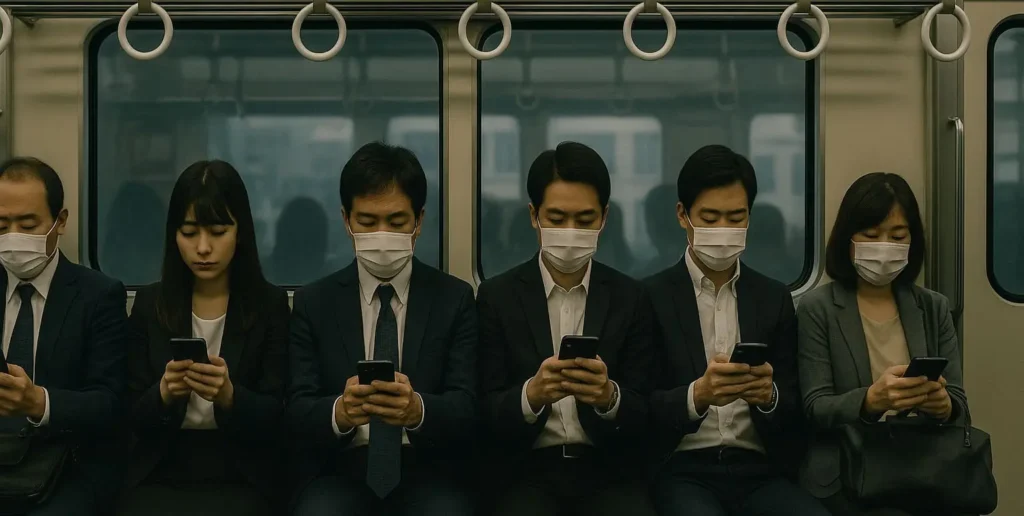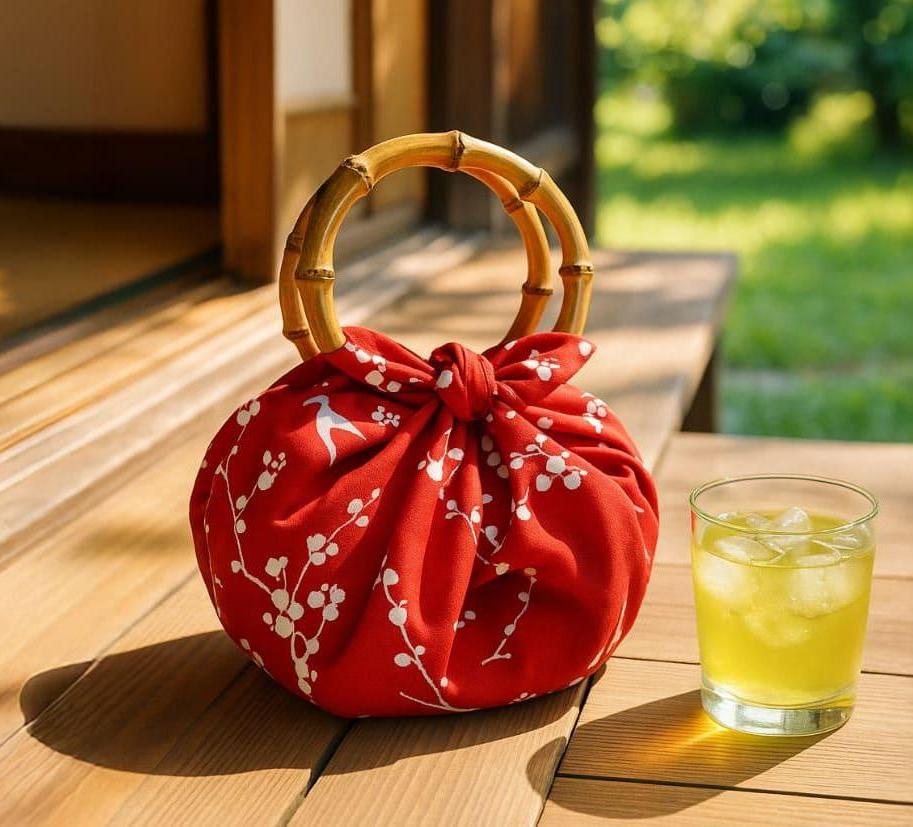Writing articles like the ones on this site, I sometimes get this nagging feeling.
It’s about the Japanese temperament.
When talking about Japanese people, I often find myself borrowing the usual clichés—
“Quiet, modest, polite”—
just like every generic website out there.
Why?
Well, because it’s kind of true.
So what’s the problem, then? you might ask.
But think about it.
Do you really believe there’s a nation out there full of “model citizens” with no emotional highs or lows?
Yes, we were an island nation, relatively isolated from the rest of the world.
But at the end of the day, we’re still just people.
We get angry. We get sad. Sometimes, we get aggressive.
Just—
the way those emotions come out happens to be… a little peculiar.
To outsiders, it might even come across as a bit childish.
Of course, even in a country this small, there are over 100 million of us.
So I know full well that generalizing is a dangerous game.
Still, for the sake of this article, I’d like to walk you through a few examples of what I’d call the “other face” of Japan—
the one that doesn’t quite fit the usual stereotype.
Not as absolute truth, but simply as:
“Yeah, sometimes, it’s like this too.”

1. The True Nature of Politeness
“Scientists have discovered a gene for politeness in the Japanese genome.”
If someone put out a fake headline like that, I wouldn’t be surprised if plenty of people believed it.
That’s how deeply politeness is embedded in daily life here.
But at the same time, it’s a behavior that can easily lead to misunderstanding.
What lies behind it is not necessarily acceptance or warmth toward others,
but rather a strong preference for avoiding conflict at all costs.
It’s a skill—a finely tuned technique for maintaining surface-level harmony.
That surface may appear perfectly calm, but underneath,
tensions, frustrations, and moments of anger build up quietly, steadily, and with nowhere to go.
In the next chapter, we’ll take a look at a few examples of how those suppressed emotions sometimes find their way out—
and the uniquely Japanese ways in which that happens.
2. When Japanese People Take Off Their “Japanese-ness”
2-1. Status-Based Aggression
I used to have a small dog named Musashi.
He had a big personality packed into a tiny body, and every time we went for a walk, he’d bark loudly at any dog we passed, ready to leap and assert his dominance.
One day, as usual, he was busy barking his head off at another dog—
and I, distracted by something else, accidentally dropped the leash.
I must’ve looked worried.
And when I turned to Musashi, I saw that he looked worried too.
He went completely quiet.
It’s a strangely endearing memory, now that I think about it.
Now, people in Japan sometimes reveal their sharper side—
but only when they’re certain the other side won’t bite back.

Excessive Demands Toward Public Services
Train delays.
Bureaucratic mistakes.
A minor mix-up at city hall.
In these moments, some people act as if public institutions must be flawless at all times—
and that even the smallest inconvenience is a moral failing.
And because public-facing staff rarely have the option to defend themselves,
this creates the perfect opening for the small, snarling dog to emerge.
He shouts, “What the hell is going on here?”
Follows up with a series of impossible demands—“What are you going to do about it?”
And just when you think it’s over,
he hits you with the hardest quiz in the world:
“Do you know who I am?”
This sort of scene?
Honestly, you’ll see it more often than you’d expect.
The Customer-as-God Complex
Shops, too, often become breeding grounds for this particular attitude.
There’s a deep-rooted belief that “if you’re paying, you’re always right.”
And then there are those who still proudly wield that ancient spell:
“The customer is God.”
When something goes wrong—
a missed order, a slow refill, a less-than-perfect smile—
these individuals draw their weapon of choice:
“I’m not talking to you. Get someone above you.”
Perhaps they assume the employee will be too scared to escalate.
But in truth, if the owner or manager actually shows up,
the issue often gets resolved surprisingly quickly.
Which makes it a double-edged sword—
a dangerous move that doesn’t always go the way they expect.
2-2. Quiet Attacks
When something doesn’t go your way, how you respond is a deeply personal thing.
It depends on personality, context, culture.
But in Japan, there’s a strangely universal response shared by a surprising number of people:
Ignoring.
Now, those from outside Japan might be thinking:
“But that doesn’t solve anything.”
Exactly.
It’s not meant to solve anything.
It’s a form of slow, indirect aggression—
a kind of silent hex, really—
that says, “I’m not speaking to you, but I really hope you notice how upset I am.”

At the Office: Strategic Silence
In Japanese workplaces, employees who disturb the harmony may find themselves quietly cut off.
Tasks no longer come their way.
Key information mysteriously stops flowing in their direction.
No one yells. No one accuses.
But bit by bit, the air gets colder.
It’s less about punishment, and more about making them… uncomfortable.
That’s all.
No big showdown. Just quiet exile.
Then there’s the infamous “banishment room.”
Yes, that’s a thing.
Some companies create entire departments with no real function,
staffed by employees they’d rather not have around.
The goal?
Assign meaningless tasks—or none at all—
and wait patiently for them to resign of their own free will.
(A workaround, in part, for Japan’s strict labor laws.)
Ironically, though, some people end up loving it.
No real work, full salary.
Not the intended outcome, but it happens more than you’d think.
In the Home: Marital Cold Wars
Even Japanese arguments follow their own customs.
Instead of saying, “I’d like you to do this,” or “I think you’re wrong,”
many couples skip the confrontation entirely.
In the early days of marriage, people may still voice their feelings.
But as time passes, the talking stops.
And when tempers rise, the silence begins.
No yelling, no discussion—just an unspoken vow:
“I will not speak to you until you crack first.”
This is not mere sulking.
It is an art form.
A lonely samurai in silent protest.
A monk in spiritual retreat from the chaos of domestic life.
Of course, sometimes it backfires.
One partner may be deeply invested in the standoff…
while the other doesn’t even realize they’re being ignored.
A sad, slightly absurd situation—
and somehow, very Japanese.
2-3. Violence Behind the Mask
A Japanese friend once told me this:
“Wearing sunglasses makes it easier to walk around.”
In Japan, where most people have dark eyes, sunglasses aren’t exactly necessary for protecting against sunlight.
So clearly, he meant something else entirely.
While this phenomenon isn’t unique to Japan, the country offers a particularly vivid example:
once people feel shielded from the gaze of society—when they step into the world of online anonymity—their behavior can change drastically.
Some begin to act as if morality is on pause, courtesy is irrelevant, and accountability is optional.
If Japan ever passed a law requiring everyone to wear masks and hide their identities while walking around town…
well, let’s just say I don’t want to imagine that version of society.

Online Pile-Ons and Cancel Culture
There’s an influencer in Japan with a strange superpower:
she manages to get roasted no matter what she posts.
A picture of an elaborate dinner?
“You just had to show off, huh?”
A humble, everyday meal?
“That’s all you feed your kids? Poor things.”
No matter what they share, the comment section turns into a mess of envy and unsolicited judgment.
What’s striking is that these critics likely wouldn’t say such things if they were face-to-face.
But shielded by anonymity, surrounded by strangers, they become oddly energized—and obsessively petty.
Ironically, the influencer in question continues to gain followers, precisely because she never responds.
It seems she’s playing a smarter game than the rest.
Anonymous Complaints in the Real World
This next example takes us offline—but the anonymity remains.
In Japan, some customers will lodge complaints when they feel wronged by a store employee.
Fair enough.
But here’s the twist: instead of saying anything at the time, they smile politely, finish their purchase, go home…
and then file a formal complaint with the company headquarters—sometimes including the employee’s full name.
It’s almost impressive.
The self-restraint required to suppress the anger in the moment.
The sharp attention needed to memorize the staff member’s name.
The determination to file that complaint hours later.
Such discipline. Such focus.
Such a waste.
3. Conclusion: Is Japanese Politeness Just a Performance?
Let’s recap the three behaviors we explored:
- The sudden shift to aggression in public situations
- The silent treatment as a form of emotional retaliation
- Excessive criticism and complaints under the veil of anonymity
At first glance, they may seem unrelated.
But beneath them lies a common thread:
a cultural expectation to “read the air”—to intuit the unspoken mood—and a tendency to treat anyone who breaks that unspoken code as an outsider.
This isn’t exactly a controversial take, and I’d argue it’s not an overly cynical one either.
That said…
I admit the Japanese people I’ve portrayed in this article may have suffered a little for the sake of my page views.
Most Japanese people are not cold-blooded double-faced psychopaths.
Nor are they scheming messengers of malice, ready to report you to your boss for using the wrong honorific.
So please, don’t worry.
Get to know us.
You’ll likely find a people who are, indeed, polite—perhaps a little timid—and, more than anything, genuinely well-meaning.





